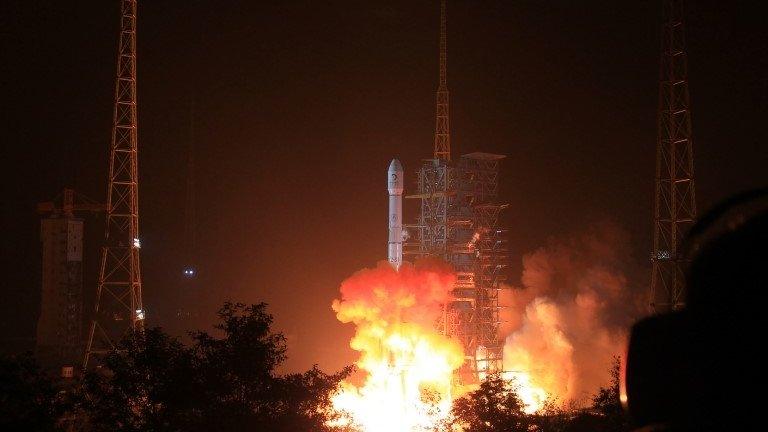Bolivian crowds cheer Tupak Katari satellite launch
- Published
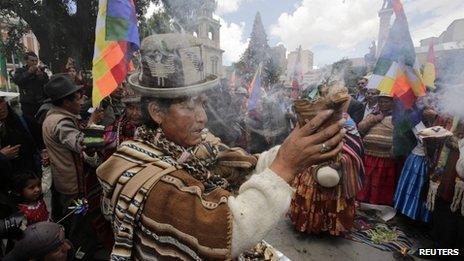
Indigenous religious leaders performed rituals ahead of the satellite launch
People in Bolivia have been celebrating the launch of the country's first telecommunications satellite.
Cheering crowds gathered in front of big television screens in La Paz to watch the rocket carrying the satellite blast off from a base in China.
The satellite is named Tupak Katari, after an indigenous hero who fought Spanish colonial rule.
Bolivia is one of the last countries in South America to have its own satellite.
President Evo Morales, who was in China for the launch, said it would end Bolivia's dependence on foreign powers for its communications.
"This will be our light, after living for so many years in the obscurity, the suffering and the domination of the empires," said Mr Morales.
The launch took place at 12:42 Bolivian time (16:42 GMT) from Xichang Satellite Launch Centre in China's southwest Sichuan province.
From the early hours of Friday morning, huge crowds began to gather at the central square in La Paz.
Before the launch, which was shown on national television, indigenous leaders performed ceremonies to Pachamama, or Mother Earth.
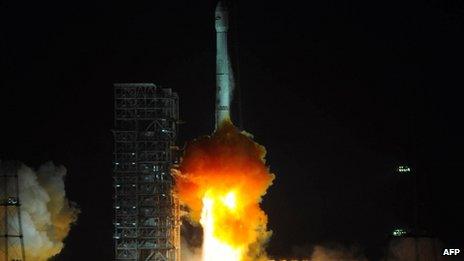
The rocket lifted off from the Xichang launch centre in Sichuan province
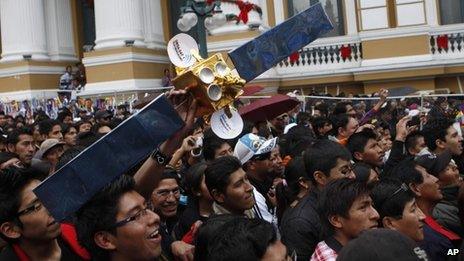
A small replica of the Tupak Katari was taken to the main square in La Paz
The satellite, also known as Tksat-1, cost $302m (£185m) and was financed by the China Development Bank.
It will reach its orbit over the Equator in about 10 days and will be fully operational in March, said Bolivian Space Agency director Ivan Zambrana.
The device, weighing more than 5.2 tonnes, will speed up and improve the quality of telephone and internet connections in Bolivia.
"It will enable us to check the composition of the soil and produce an inventory of our natural resources. It will also be used to monitor urban growth and help agriculture," Mr Zambrana told La Razon newspaper.
- Published7 February 2023
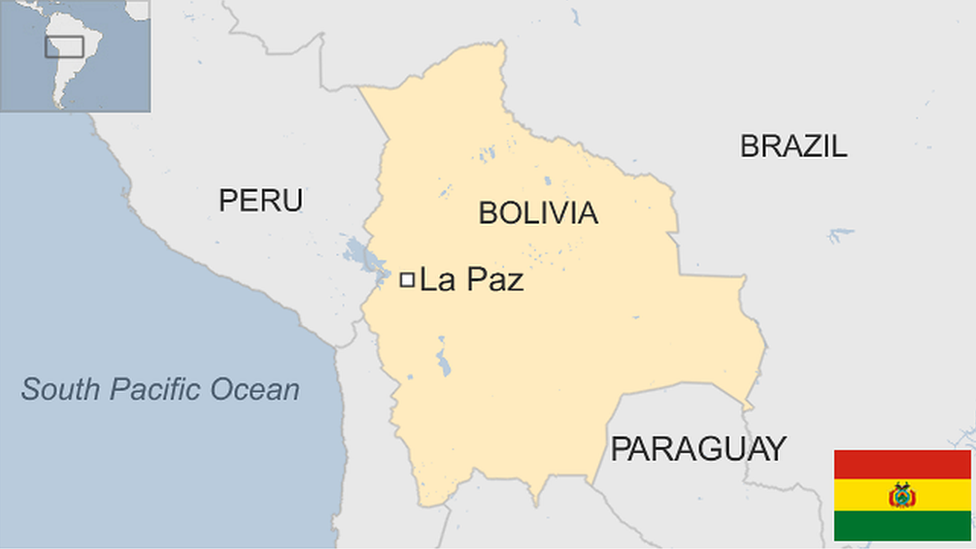
- Published24 July 2013
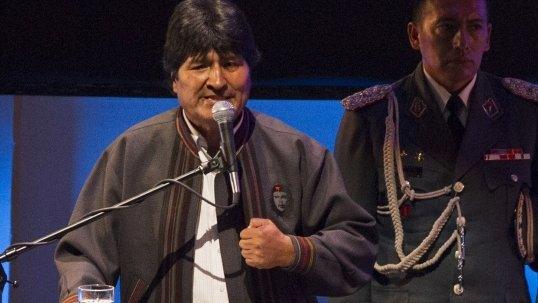
- Published4 November 2013
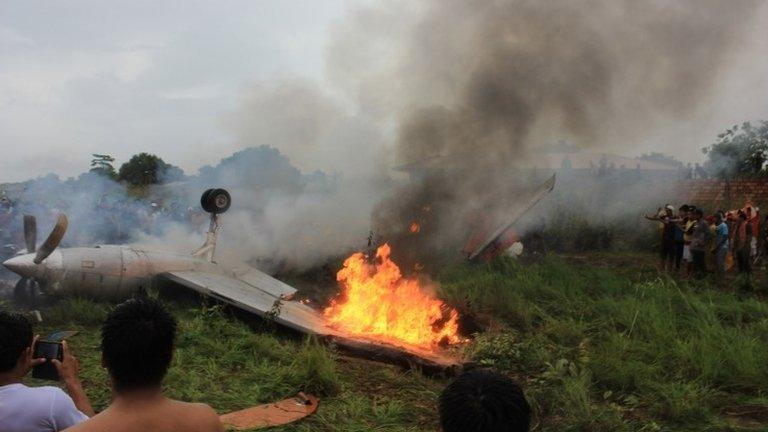
- Published1 December 2013
